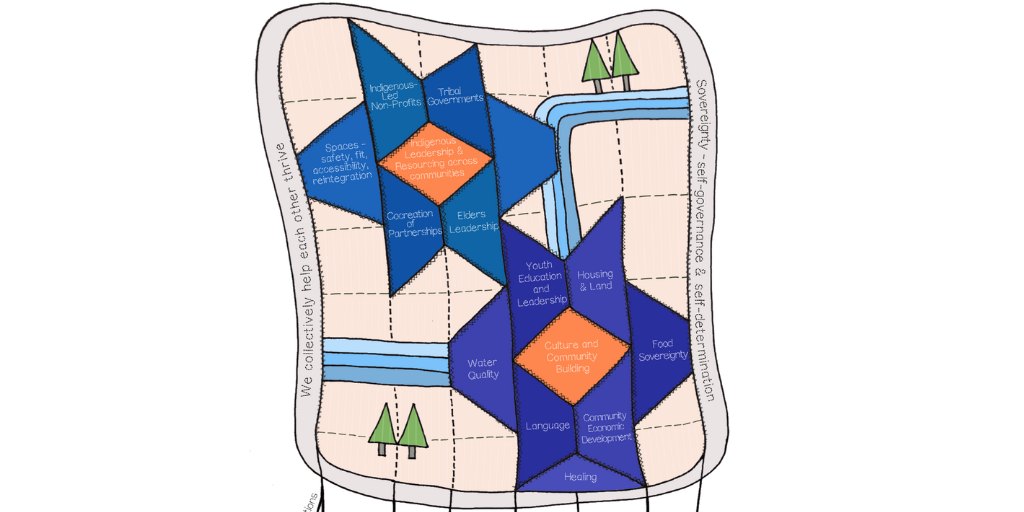From a poverty reduction perspective, we are inundated by the sound of many voices: our clients, our funders and donors, our  colleagues, governments at all levels, business leaders and their labour counterparts, and on it goes. That’s what this article is about: lessening the noise that envelopes us and increasing our capacity to make music together when it comes to identifying, acting on, and evaluating poverty reduction efforts.
colleagues, governments at all levels, business leaders and their labour counterparts, and on it goes. That’s what this article is about: lessening the noise that envelopes us and increasing our capacity to make music together when it comes to identifying, acting on, and evaluating poverty reduction efforts.
My sole focus when I set out to write this article wasn’t on lessening the noise. It was not about coming up with an innovation in evaluation. Rather my focus was on making evaluation work easier for our Vibrant Communities Canada members to participate in. As my conversations to explore this possibility with folks inside and outside of Tamarack began, it wasn’t long before the notion of “Game Changer” strategies emerged. As the dialogue evolved we began to define “Game Changers” as big change priorities, that if adequately addressed, produced benefits and outcomes that cascaded into other areas. For example, we knew that optimally addressing the need for more safe and affordable housing would have positive influences on socialization, community participation, stabilization of health problems, job hunting, and access to support services.
As the conversation continued, we soon understood that adopting an overall Game Changer mindset about poverty reduction could offer us a different if not new way of seeing priorities, strategies, funding, resource allocation, and innovation. It could provide a frame for decision-making, a way of focusing in on big change possibilities, and it would allow us to communicate more effectively about what is happening across the country to significantly address poverty. From our conversations and additional thinking, we came to this understanding of what a Game Changer looks like, within the context of poverty reduction:
A poverty reduction Game Changer is a priority area or strategy that not only aims to deliver on its own specific goals or outcomes, but also elicits an array of other significant, positive outcomes that cascade both within and outside of its area of emphasis, and consequently profoundly impacts the course, character, or extent of poverty experienced by human beings, both individually and collectively.
Taking a Game Changer stance creates focus for priority setting and strategy building. Furthermore, Game Changer thinking offers the potential to do the following:
- Clarify and Advance Collective Impact Efforts
- Emphasize Progress Over Proof
- Shift from Attribution Towards Contribution
- Explore Policy and Political Possibilities
The richness of the learning that evaluations can provide is at least as important as assessing progress toward game-changing aspirations. Our eventual success doesn’t just benefit from learning; it requires it. In the Game Changer context, the learning focus is concentrated, more focused on the big change actions we are undertaking than on everything and anything.
Learn More:
- Download the full article: Sometimes to Hear the Music You Have to Turn Down the Noise by Mark Holmgren
- Join Liz Weaver & Mark Cabaj for Evaluating Community Impact a 3-day workshop – November 15-17, 2016 in Hamilton, Ontario
- Register for the webinar: A Game Changer Approach to Poverty Reduction Strategy & Evaluation with Mark Holmgren and Mark Cabaj – October 14, 2016 @ 12:00 p.m. EST
- Join Tamarack’s free Evaluating Community Impact Community of Practice





